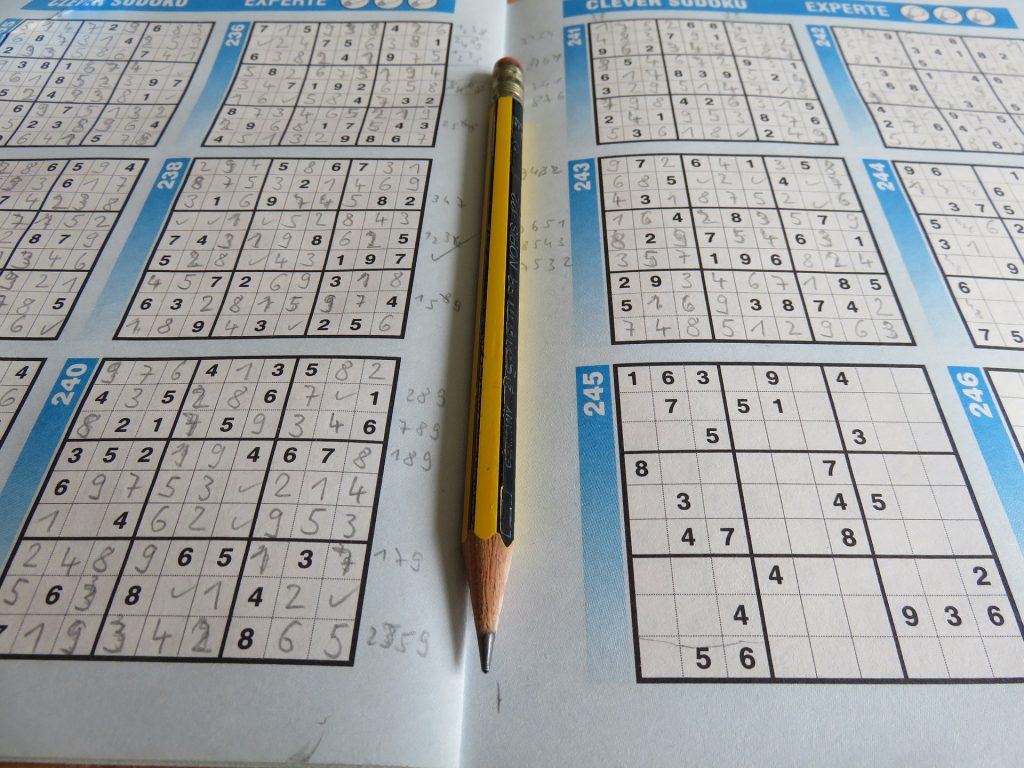The Importance of Logical Reasoning in Solving Complex Puzzles

The Importance of Logical Reasoning in Everyday Challenges
Every day, we encounter challenges that require us to think critically and navigate through various complexities. Logical reasoning is a vital cognitive skill that enables individuals to break down intricate problems into manageable parts. This skill proves essential in our fast-paced world, whether resolving personal dilemmas, navigating workplace challenges, or even playing strategic games. While many may rely on instinctive solutions, those who master logical reasoning often achieve richer, more informed outcomes.
Consider the following benefits of strong logical reasoning:
- Enhanced Decision-Making: Logical reasoning facilitates thorough analysis of potential outcomes, leading to more informed choices. Imagine a student in Nigeria deciding which university to attend. By evaluating factors such as course offerings, funding opportunities, and long-term career prospects, logical reasoning aids them in making a decision that aligns with their goals.
- Improved Analytical Skills: Logical reasoning cultivates the ability to dissect various problems, enhancing our analytical capabilities. For instance, a small business owner negotiating a lease must analyze terms and conditions methodically to ensure favorable agreements, thus preventing future disputes.
- Increased Creativity: Interestingly, when individuals apply logical frameworks, it often inspires innovative solutions to even seemingly unsolvable puzzles. A team attempting to brainstorm solutions to reduce waste in a manufacturing process can systematically assess each aspect, sparking inventive strategies that might not have surfaced through mere speculation.
In Nigeria, where puzzles range from local trivia to international brainteasers, the significance of logical reasoning holds the key to unlocking solutions. Consider traditional games such as Ludu or Wari, which have formed an integral part of cultural heritage. These games require strategic thinking and foresight, compelling players to anticipate their opponents’ moves while managing their own strategies. The skills honed through such games extend far beyond mere entertainment and have a lasting impact on cognitive development.
Furthermore, everyday scenarios like navigating traffic in busy Lagos or deciding the best route to avoid roadblocks can also benefit from logical reasoning. As drivers assess different paths, weigh the pros and cons of each route, and adapt to unpredictability, they effectively engage in a form of real-time problem-solving.
Ultimately, mastering logical reasoning can greatly influence how we approach both simple puzzles and more challenging scenarios in life. In this article, we will explore how this skill can be developed and applied across various puzzle types, leading not just to enhanced problem-solving but also to personal growth. By nurturing these abilities, we empower ourselves to face challenges with confidence and creativity, no matter what life sends our way.


LEARN MORE: This related article may interest you
Unraveling Complex Puzzles through Logical Reasoning
Logical reasoning serves as a framework that aids in the deconstruction of complex puzzles, allowing individuals to approach these challenges methodically. This skill is not just an academic exercise; it plays a crucial role in everyday problem-solving scenarios, especially in a diverse and dynamic context like Nigeria. When faced with intricate riddles or multifaceted challenges, the ability to employ logical reasoning enables individuals to sift through chaos and identify patterns, ultimately leading to effective solutions.
One significant area where logical reasoning shines is in tackling mathematical puzzles. These puzzles require not only numerical proficiency but also the ability to recognize underlying principles. For example, consider a student preparing for a mathematics competition. By breaking down the problem into smaller segments—such as examining the relationships between numbers and understanding equations—students can apply logical reasoning to arrive at a solution that may initially seem elusive.
Additionally, logic puzzles are another fascinating domain where this skill is put to the test. Whether it’s a grid-based problem requiring the placement of items without violating certain conditions or a classic riddling scenario with multiple layers of information, participants must employ clear thought processes. As players engage in these puzzles, they not only sharpen their logical reasoning but also improve their focus and attention to detail, attributes that extend to various aspects of life.
The world of puzzles is vast, but several types particularly showcase the utility of logical reasoning:
- Crossword Puzzles: These classic word games rely heavily on deductive reasoning to infer word meanings based on clues. Crafting a crossword demands an understanding of language and the ability to connect concepts.
- Sudoku: In this number-placement puzzle, logic becomes paramount. Each number must be strategically placed according to pre-established rules, requiring players to analyze possibilities continuously.
- Escape Room Challenges: Often found in urban areas, these puzzles combine various elements and tasks that participants must solve collaboratively. It demands teamwork and logical deduction to unlock the mystery.
Logical reasoning is not merely about following a set path; it encourages flexible thinking. In Nigeria, where cultural and societal complexities thrive, this adaptability becomes increasingly valuable. For instance, tackling societal issues such as waste management in urban settings necessitates logical reasoning to evaluate different approaches, predict outcomes, and foster community cooperation. Here, logical reasoning morphs from a personal skill into a collective asset for societal improvement.
Moreover, developing logical reasoning skills through puzzles also contributes to greater cognitive health. Engaging in activities that challenge our mental faculties can improve memory, enhance problem-solving abilities, and offer a satisfying sense of accomplishment. As we delve deeper into the intersection of logical reasoning and puzzle-solving, the myriad benefits become increasingly apparent, urging us to embrace and cultivate these skills as lifelong essentials.
The significance of logical reasoning in unraveling complex puzzles extends beyond entertainment; it plays a pivotal role in enhancing cognitive skills that are applicable in everyday life. Engaging with puzzles trains the brain to approach problems methodically, breaking down intricate challenges into manageable parts. This skill is essential not only in recreational settings but also in professional environments where analytical thinking is demanded.
Moreover, as individuals immerse themselves in these mental challenges, they cultivate a range of abilities. Skills such as pattern recognition and deductive reasoning become sharper, facilitating better decision-making and problem-solving capabilities across various contexts. For instance, research indicates that engaging with logic puzzles can lead to improved performance in academic and workplace settings, making it a valuable practice for students and professionals alike.
Additionally, solving complex puzzles fosters a sense of satisfaction and achievement. Each solved puzzle reinforces a positive feedback loop, encouraging individuals to tackle even more challenging problems. This aspect of logical reasoning is crucial in building resilience and confidence, particularly in young learners who often encounter frustrations in the learning process. By overcoming these puzzles, they not only sharpen their reasoning skills but also learn that perseverance leads to success.
In summary, the importance of logical reasoning in solving complex puzzles cannot be overstated. It equips us with essential skills, enhances our cognitive capabilities, and enriches our problem-solving toolbox, making it a cornerstone of personal and intellectual development.
| Category | Benefits |
|---|---|
| Cognitive Development | Enhances problem-solving and analytical skills. |
| Pattern Recognition | Improves the ability to identify trends and solutions. |
| Confidence Building | Fosters resilience through overcoming challenges. |
RECOMMENDED: Check out this similar article
Enhancing Critical Thinking through Puzzle Solving
Beyond merely solving puzzles, logical reasoning fosters critical thinking capabilities that have profound implications both academically and socially. In a diverse environment like Nigeria, where educational disparities exist, cultivating logical reasoning can bridge gaps and promote equitable learning. Consider how logical reasoning is employed in workshops or classrooms; educators can design puzzle-oriented activities that encourage students to think critically. This approach transforms the classroom into an interactive environment where students learn not just to find the answers but to understand the reasoning behind those answers, fostering a deeper grasp of the subject matter.
Complex narrative puzzles also play a pivotal role in developing logical reasoning skills. These puzzles require solvers to sift through extensive information to determine logical sequences or causations. For example, a popular detective story puzzle involves piecing together clues from different scenarios to arrive at a conclusion. In doing so, solvers engage not only their deductive reasoning but also their ability to synthesize information and infer based on given data. In settings such as Nigerian literary clubs, where creative problem-solving is encouraged through such puzzles, individuals enhance their analytical abilities in a collaborative yet competitive manner.
Moreover, programming and coding puzzles have surged in popularity, especially among Nigerian youth interested in tech entrepreneurship. These challenges rely heavily on logical reasoning to devise algorithms and troubleshoot problems. Engaging with coding puzzles nurtures a generation of skilled thinkers, preparing them for the complexities of digital innovation. Online platforms that offer such puzzles are becoming valuable resources for students and professionals alike, emphasizing the importance of logical reasoning within the context of Nigeria’s burgeoning tech industry.
Logical reasoning also aids in everyday decision-making processes. Consider a community facing the challenge of constructing proper drainage systems to combat flooding. Individuals leveraging logical reasoning can assess various factors—cost implications, environmental impact, and community needs—before reaching a collective decision. This process of analytical thinking ensures that solutions resonate with the actual needs of the residents, highlighting how logical reasoning transcends puzzles and infuses itself into social initiatives, ultimately promoting community development.
Furthermore, initiatives that promote puzzles and logical reasoning in schools can lead to improved academic performance. According to various educational research studies, students who regularly engage in problem-solving exercises exhibit enhanced performance in subjects like mathematics and science. In Nigeria, where the STEM (Science, Technology, Engineering, and Mathematics) fields are increasingly vital for national development, encouraging logical reasoning through puzzles can position students for success in these critical areas.
As individuals develop their logical reasoning skills through engagement with complex puzzles, they also enhance their resilience, persistence, and patience—qualities that are indispensable both in academic pursuits and personal endeavors. The process may be challenging, but enduring the struggle to solve intricate puzzles teaches individuals that complex problems often yield rewarding solutions when approached with a logical mindset.
CHECK OUT: Click here to explore more
Conclusion
In summary, the role of logical reasoning in solving complex puzzles transcends mere entertainment; it is an essential skill that can significantly influence personal growth, academic performance, and societal development, particularly in Nigeria. By engaging in puzzle solving, individuals not only hone their analytical skills but also foster a mindset that embraces creative problem-solving and resilience. Students exposed to puzzle-oriented learning environments can bridge educational gaps, enhancing their performance in critical subjects like mathematics and science—areas pivotal for the country’s growth in STEM fields.
Moreover, as communities face pressing challenges, the systematic approach encouraged by logical reasoning can guide decision-making processes, ensuring that solutions are both effective and reflective of local needs. From classrooms to community projects, the emphasis on puzzles as tools for developing logical reasoning provides opportunities for collaborative learning and personal discovery.
The growing popularity of coding and programming puzzles further underscores the relevance of logical reasoning in today’s tech-centric world. As Nigeria embraces the digital era, nurturing logical thinkers through these challenges will prepare the youth for future innovations and entrepreneurship.
Ultimately, the importance of logical reasoning extends far beyond the realm of puzzles; it is a vital skill that cultivates critical thinkers ready to tackle the complexities of modern-day issues. Embracing this skill may very well unlock vast potential for our communities and the nation as a whole. The journey may be challenging, but the rewards of persistent logical reasoning are immense, ensuring that complex problems can indeed yield successful and impactful solutions.



